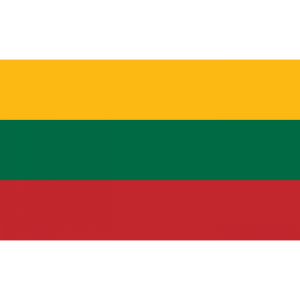Language/Lithuanian/Grammar/Future-Tense
Hi Lithuanian learners! 😊
In this lesson, we will learn about the future tense in Lithuanian. We will look at how to form the future tense, as well as some examples of its use.
The future tense in Lithuanian is formed using the verb endings -s, -si, -sime, -site, -s. The verb stem remains unchanged. For example, the verb "eiti" (to go) has the future tense forms eis, eisi, eisime, eisite, eis.
Examples
| Lithuanian | Pronunciation | English Translation |
|---|---|---|
| Eisiu | ay-see-yoo | I will go |
| Eisi | ay-see | You will go |
| Eisime | ay-see-meh | We will go |
| Eisite | ay-see-teh | You (plural) will go |
| Eis | ay-ss | They will go |
The future tense can be used to talk about plans and intentions. For example:
- Aš eisiu į mokyklą rytoj (I will go to school tomorrow).
- Tu eisi į parduotuvę šiandien (You will go to the store today).
- Mes eisime į koncertą šį vakarą (We will go to the concert tonight).
- Jūs eisite į pokalbį kitą savaitę (You will go to the meeting next week).
- Jie eis į lauką po savaitės (They will go to the field after a week).
The future tense can also be used to talk about predictions. For example:
- Aš manau, kad jie eis į lauką po savaitės (I think they will go to the field after a week).
- Mano draugas sako, kad mes eisime į koncertą šį vakarą (My friend says that we will go to the concert tonight).
The future tense can also be used to talk about habits and routines. For example:
- Aš eisiu į mokyklą kiekvieną dieną (I will go to school every day).
- Tu eisi į parduotuvę kartą per savaitę (You will go to the store once a week).
- Mes eisime į koncertą kartą per mėnesį (We will go to the concert once a month).
- Jūs eisite į pokalbį kartą per metus (You will go to the meeting once a year).
- Jie eis į lauką kartą per penkerius metus (They will go to the field once every five years).
➡ If you have any questions, please ask them in the comments section below.
➡ Feel free to edit this wiki page if you think it can be improved. 😎

